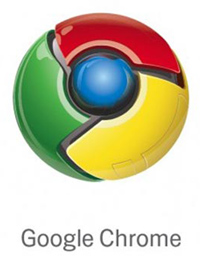As I’m sure you’ve heard, Google is going through some major changes in in structure. Google itself now has a parent company. Even after sleeping on it, it’s still sinking in. Many, many businesses rely on Google for their well-being in part if not almost entirely in some cases. It’s worth considering how the new structural changes might impact everyone else going forward.
Do you expect businesses to benefit from these changes at Google? Share your thoughts in the comments.
First things first. In case you missed it for some reason, Google announced Monday afternoon that it has formed a new company called Alphabet, which will be a parent company to Google, among other things. Instead of Google being the parent to all of the company’s endeavors, Google will sit alongside some of those under the bigger umbrella of Alphabet.
Larry Page will no longer be the CEO of Google. He’ll be the CEO of Alphabet with co-founder Sergey Brin running it alongside him as President. Executive chairman Eric Schmidt will now hold that role for Alphabet instead of Google. CFO Ruth Porat will hold that role for both (Google is after all still the main moneymaker here). Longtime Google exec Sundar Pichai becomes the new CEO of Google.
Alphabet includes: Google, Calico, Nest, Fiber, Google Ventures, Google Capital, and Google X, which includes things like Glass, self-driving cars, Wing (drones), Robots, and Internet balloons. These are to all be operated separate from one another instead of all being under Google itself. Google as a company still includes the core search and advertising business as well as Android, Chrome, YouTube, Maps, etc. Presumably it will retain Gmail, Drive, Cloud Platform and various other Google-branded web-related products. For most businesses and consumers, it doesn’t sound like much will change on the surface.
But just because there won’t be any obvious changes on the surface, that doesn’t mean the rest of us won’t feel the effects from the move to Alphabet going forward. Everybody relying on Google products, like search, advertising, YouTube, apps, etc., now get to experience all of these things under new leadership.
Pichai has been with Google since 2004, and is the obvious choice to take on the new role. He has led efforts from Chrome and Chrome OS, Google Drive, Gmail, Google Maps, and Android. As of this past October, he has been Product Chief at Google. At that point he reportedly took over Google Research, web search, Google Maps, Google+, advertising, commerce, and infrastructure.
In the announcement, Page had this to say about him:
This new structure will allow us to keep tremendous focus on the extraordinary opportunities we have inside of Google. A key part of this is Sundar Pichai. Sundar has been saying the things I would have said (and sometimes better!) for quite some time now, and I’ve been tremendously enjoying our work together. He has really stepped up since October of last year, when he took on product and engineering responsibility for our internet businesses. Sergey and I have been super excited about his progress and dedication to the company. And it is clear to us and our board that it is time for Sundar to be CEO of Google. I feel very fortunate to have someone as talented as he is to run the slightly slimmed down Google and this frees up time for me to continue to scale our aspirations. I have been spending quite a bit of time with Sundar, helping him and the company in any way I can, and I will of course continue to do that. Google itself is also making all sorts of new products, and I know Sundar will always be focused on innovation—continuing to stretch boundaries. I know he deeply cares that we can continue to make big strides on our core mission to organize the world’s information. Recent launches like Google Photos and Google Now using machine learning are amazing progress.
In other words, Sundar is taking the reins, and Page won’t be as hands on with Google and all the things that have the ability to directly affect your business, though he’ll still be there for guidance as needed. Also, Pichai and crew already have some unspecified new products in the pipeline (When doesn’t Google have new products in the pipeline?). It wouldn’t make a lot of sense to speculate on just exactly how things are going to be different under Pichai’s direct leadership, but change is change, and businesses are likely to feel the effects in one way or another. Probably many ways.
At the end of the announcement, Page listed the things he’s excited about, and one of these is “making Google even better through greater focus”.
They’ll likely continue down the path they’ve already started by reducing the presence of Google+ (which wasn’t mentioned a single time in the announcement) among Google’s products.
Since Pichai took on his role of product chief, Google has announced countless advertising features and improvements, including the AdWords app, local Google forwarding numbers in AdWords, automatic conversion of Flash ads to HTML5, call-only campaigns, upgraded URLs, improvements to accidental click blocking, new dynamic search ads, 360-degree video ads, new shopping features, a slew of Analytics improvements, and new automated bidding tools to name a few. On the organic search side of things, there has been an increased focus on mobile experience in terms of ranking.
YouTube should continue down its already established path. As Page noted:
Google also has some services that are run with their own identity, like YouTube. Susan [Wojcicki] is doing a great job as CEO, running a strong brand and driving incredible growth.
The point is that a lot of features that directly impact businesses like yours have already been coming out under leaders like Pichai and Wojcicki, but with Page shifting his own focus to bigger things, these leaders will have an even greater hand in launching and maintaining these features.
We’ll have to see how it goes, but my guess is that this greater focus will lead to good things.
What do you think? Do you expect businesses to benefit from the new structure? Do you expect Pichai to be the right leader for Google? Share your thoughts in the comments.








 943
943  121
121 


 That could translate to hundreds of thousands of dollars, or even several million. Which is perhaps a win for Google, considering that the company was willing to offer it, but also a sign Twitter’s becoming more of a threat when it comes to poaching employees.
That could translate to hundreds of thousands of dollars, or even several million. Which is perhaps a win for Google, considering that the company was willing to offer it, but also a sign Twitter’s becoming more of a threat when it comes to poaching employees.
 Google doesn’t intend to put out a buggy beta product that will hobble along, frustrating early adopters, either. Sundar Pichai explained, "We will be selective on how we come to market because we want to deliver a great user experience. We’re thinking on both the hardware and software levels."
Google doesn’t intend to put out a buggy beta product that will hobble along, frustrating early adopters, either. Sundar Pichai explained, "We will be selective on how we come to market because we want to deliver a great user experience. We’re thinking on both the hardware and software levels."